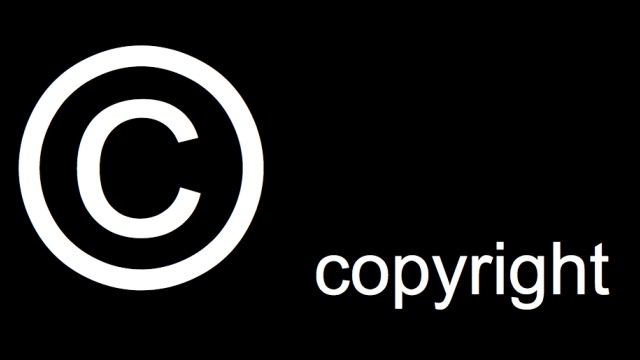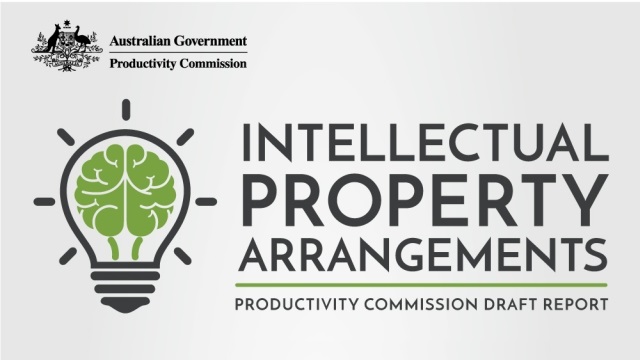
Divided views on Australia’s proposed copyright law reforms
Productivity Commission intellectual property arrangements report
In May this year, Australia’s Productivity Commission published a draft report recommending changes to intellectual property (IP) arrangements, include reforms to copyright laws. Submissions on the draft report were invited by 3 June 2016, and the final report is expected later in 2016.
The key points of the draft report include that:
Australia’s copyright system has progressively expanded and protects works longer than necessary to encourage creative endeavour, with consumers bearing the cost.
- A new system of user rights, including the introduction of a broad, principles-based fair use exception, is needed to help address this imbalance.
- Better use of digital data and more accessible content are the key to reducing online copyright infringement, rather than increasing enforcement efforts or penalties.
The findings and recommendations in regard to copyright are:
Chapter 4: Copyright term and scope
DRAFT FINDING 4.1
Australia’s copyright system has expanded over time, often with no transparent, evidence-based policy analysis demonstrating the need for, or quantum of, new rights.
DRAFT FINDING 4.2
While hard to pinpoint an optimal copyright term, a more reasonable estimate would be closer to 15 to 25 years after creation; considerably less than 70 years after death.
DRAFT RECOMMENDATION 4.1
The Australian Government should amend the Copyright Act 1968 (Cth) so the current terms of copyright protection apply to unpublished works.
Chapter 5: Copyright accessibility: licensing and exceptions
DRAFT RECOMMENDATION 5.1
The Australian Government should implement the recommendation made in the House of Representatives Committee report At What Cost? IT pricing and the Australia tax to amend the Copyright Act 1968 (Cth) to make clear that it is not an infringement for consumers to circumvent geoblocking technology.
The Australian Government should seek to avoid any international agreements that would prevent or ban consumers from circumventing geoblocking technology.
DRAFT RECOMMENDATION 5.2
The Australian Government should repeal parallel import restrictions for books in order for the reform to take effect no later than the end of 2017.
DRAFT RECOMMENDATION 5.3
The Australian Government should amend the Copyright Act 1968 (Cth) (Copyright Act) to replace the current fair dealing exceptions with a broad exception for fair use.
The new exception should contain a clause outlining that the objective of the exception is to ensure Australia’s copyright system targets only those circumstances where infringement would undermine the ordinary exploitation of a work at the time of the infringement. The Copyright Act should also make clear that the exception does not preclude use of copyright material by third parties on behalf of users.
The exception should be open ended, and assessment of whether a use of copyright material is fair should be based on a list of factors, including:
- the effect of the use on the market for the copyright protected work at the time of the use
- the amount, substantiality or proportion of the work used, and the degree of transformation applied to the work
- the commercial availability of the work at the time of the infringement
- the purpose and character of the use, including whether the use is commercial or private use.
The Copyright Act should also specify a non-exhaustive list of illustrative exceptions, drawing on those proposed by the Australian Law Reform Commission.
The accompanying Explanatory Memorandum should provide guidance on the application of the above factors.
ALRC Copyright and the Digital Economy report
The Productivity Commission draft report follows a 2014 report from the Australian Law Reform Commission (ALRC) titled Copyright and the Digital Economy. This report also recommended the introduction of a fair use policy: “Fair use is a defence to copyright infringement that essentially asks of any particular use: Is this fair?”
Angus Kidman provides a summary of the ALRC’s proposed fair use reforms in Lifehacker:
…just what would a fair use principle allow? The report identifies four “fairness factors”:
- How the material is used
- The nature of the material
- The amount and substantiality of the material used
- The effect on the value of the material
Those last two clauses would mean that a brief clip from a movie might be allowable in a news report, but a wholesale revoicing of Star Wars probably would not.
The ALRC report puts forward a non-exhaustive list of illustrative uses or purposes that may qualify as fair use:
- research or study;
- criticism or review;
- parody or satire;
- reporting news;
- professional advice;
- quotation;
- non-commercial private use;
- incidental or technical use;
- library or archive use;
- education; and
- access for people with disability.
Opposition to the proposed copyright reforms
Linda Morris reports in the Canberra Times that aspects of the proposed reforms have sparked strong opposition from the Australian book industry.
There have been strong headlines from prominent Australian authors. For example, Richard Flanagan has accused Australian Prime Minister Malcolm Turnbull of wanting to destroy Australian literature, Magda Szubanski may leave Australia if the changes go ahead, and Tim Winton stated at the Australian Book Industry Association (ABIA) 2016 awards ceremony that “it distresses me to see how anxious our technocrats are to piss all this good work up against the wall.”
Morris reports that the Australian Publishers’ Association, the Australian Literary Agents’ Association, the Australian Society of Authors and the Printing Industries Association of Australia have come together to fund the Books Create Australia campaign.
Their concerns focus on the Productivity Commission draft recommendation to repeal parallel import restrictions (PIRs) for books (Draft Recommendation 5.2 above). They argue that removing PIRs on books will:
- allow the mass importation of lower-royalty and royalty-free editions of Australian authors’ books into the Australian marketplace;
- see local publishers reluctant to sell foreign rights to Australian authors’ works; and
- impede local publishers’ ability to distribute local editions of international bestsellers.
Morris advises that the book industry disputes the Productivity Commission’s conclusion that removing PIRs would result in cheaper books, with the industry arguing that “the commission has relied on inaccurate pricing data, some more than 12 years old, which prefigure steep discounting of books by large retail chains such as Big W.”
Louise Adler, chief executive of Melbourne University Publishing and president of the Australian Publishing Association, reinforces this point in comment in The Age, stating that:
…the Productivity Commission’s idea that the abolition of territorial copyright will deliver cheaper books to consumers has remained unchanged despite the evidence. It suggests the commission has an ideological agenda rather than the ability to provide an objective view of the challenges facing the book industry.
Support for the proposed copyright reforms
Matthew Rimmer, Professor in Intellectual Property and Innovation Law at the Queensland University of Technology, states in The Conversation that:
- Parallel importation restrictions largely benefit multinational publishing networks and foreign authors rather than local authors.
- The removal of parallel importation restrictions would be beneficial for Australian readers.
He accuses outspoken opposing authors and publishers of “running a scare campaign”, saying that “their emotive arguments are weak, inaccurate and unconvincing.”
Kathy Bowrey, a Professor in Intellectual Property Law at UNSW Australia who was a member of the ALRC Copyright and the Digital Economy Advisory Committee, has written a number of articles in support of the proposed copyright reforms.
In an article in ABC The Drum she also questions the author and publisher response, stating that:
Patriotic calls for retention of the status quo misunderstand the colonial foundation of those laws. They actually operate to the benefit of multinational publishers rather than authors. And Australian authors are seriously misleading the public about what is actually at stake.
Bowrey advises that authors can relax in regard to the Productivity Commission draft finding that a more reasonable estimate of copyright term would be closer to 15 to 25 years after creation (Draft Finding 4.2 above), because Australia’s international trade agreements mean that the country is “bound to a life-plus-70-year copyright term.” However, she still believes that a shorter term would be desirable. Catherine Bond, a Senior Lecturer in Law at UNSW Australia, offers support for this view in a 2015 article in The Conversation, stating that “it may be time to limit the time of copyright.”
In regard to the proposed repeal of parallel import restrictions (PIRs) for books (Draft Recommendation 5.2 above), Bowrey states that:
…the problem for Australian writers and readers is this: as the publishing industry internationalised in the early 20th century, Australian authors largely lost out. Local publishers lacked the capital, skilled management and ambition to compete abroad. And the old reductions in pricing that had been established for 19th-century “colonial editions” dropped away.
Under the modern internationalisation of copyright, price increases for imported books for “colonials” were inevitable. Restrictions on parallel importation – limiting the right to source books on the open market – have ensured that what is euphemistically called the “Australia tax” applies to imported books.
Lifting the final importation restrictions will remove a colonial legacy that empowers multinational publishers. It will do nothing to affect the contractual rights of Australian authors to decide what rights to assign to whom in Australia or overseas. Nor should it affect the value of those rights.
In a further article in The Age, Bowrey addresses the Productivity Commission’s proposed fair use changes (Draft Recommendation 5.3 above).
She advises that the proposal “to replace the copyright “fair dealing” exceptions with “fair use” – has come about because reform is needed so our libraries, researchers, teachers and an array of established creative practices can be supported.”
Bowrey states that:
Fair use would greatly simplify compliance so that professionals can more efficiently perform their public functions. It is an enormous waste of public resources to tie up our libraries, archives and universities in this kind of red tape. Fair use does not give the go-ahead for libraries or universities to start providing material for free on a grander scale.
These institutions are already buying the works, subscribing to the publisher databases, cataloguing and indexing the material for posterity, in accordance with their public mandate. It just frees up their ability to get on with it.
In another article in The Conversation early this year, Bowrey laments the slow progress of copyright law reform in Australia, and is critical of Australian government decision-making in regard to intellectual property (IP) policy:
…successive governments have negotiated away many areas of Australian IP policy in international agreements, beginning with Chapter 17 of the 2005 the US-Australia Free Trade Agreement, and more recently the 2015 Trans-Pacific Partnership. These agreements, negotiated without public scrutiny or evidence about impact, limit our capacity to determine the national interest in fashioning the balance of our IP laws.
She contends that “Copyright law reform needs to be taken seriously as a political concern, not left as a plaything shunted from inquiry to inquiry, while other games are carried on behind the scenes.”
The current vocal opposition from authors and publishers may mean that the progress of reforms remains slow.
Image source: Copyright Symbols by Mike Seyfang is licensed by CC BY 2.0.
Also published on Medium.





